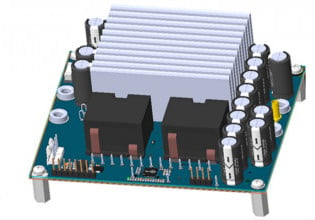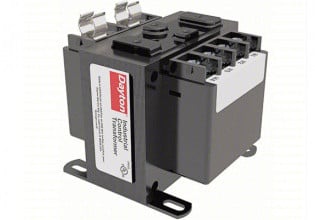Optimized 32bit MCU Architecture Decreases Power Consumption
According to Jennifer Barry, Product Marketing Manager for MSP430 Microcontroller, Texas Instruments announced with its MSP432 microcontroller platform the industry’s lowest power 32-bit ARM Cortex-M4F MCUs.
These new 48MHz MCUs leverage the company´s ultra-low-power MCU expertise to optimize performance without compromising power, while only consuming 95µA/MHz in active power and 850nA in standby power. Industry-leading integrated analog, such as a high-speed 14-bit 1MSPS analog-to-digital converter (ADC), further optimizes power efficiency and performance. The new MCUs enable designers to develop ultra-low-power embedded applications such as industrial and building automation, industrial sensing, industrial security panels, asset tracking and consumer electronics where both efficient data processing and enhanced low-power operation are essential.
The new 32-bit MCUs are the latest advance-ment in ultra-low-power innovation, delivering a best-in-class ULPBench score of 167.4. This ultra-low power benchmark (ULPBench) from the Embedded Microprocessor Bench-mark Consortium (EEMBC) provides a standard way to compare power performance on any MCU, independent of architecture. The integrated DC/DC optimizes power efficiency at high-speed operation, while an integrated LDO reduces overall system cost and design complexity. In addition, a 14-bit ADC consumes only 375µA at 1MSPS. These MCUs include a unique selectable RAM retention feature that provides dedicated power to each of the eight RAM banks needed for an operation, so overall system power can be reduced by 30nA per bank. The MCUs can also operate as low as 1.62V and as high as 3.7V with full-speed operation to lower overall system power. As the flagship product in the growing 32-bit ultra-low-power MSP MCU portfolio, developers can expect the MSP432 MCU roadmap to include increasing levels of analog, integration and up to 2MB flash memory, while extending ultra-low-power leadership.
The new MCUs pack more performance into devices without compromising power budgets. The integrated digital signal processing (DSP) engine and floating-point core (FPU) of the ARM Cortex-M4F core enable a multitude of high performance applications, such as signal conditioning and sensor processing, while maintaining performance headroom for product differentiation. The MCUs include up to 256 KB flash and boost performance with dual-bank flash memory that enables simultaneous read and write functionality. An advanced encryption standard (AES) 256 hardware encryption accelerator enables developers to secure their device and data, while IP protection features on the MCUs ensure data and code security. These features result in higher throughput, more integration of advanced algorithms, wired or wireless Internet of Things (IoT) stacks and higher resolution display images – all while operat-ing within an existing power budget.
Developers can start evaluating the new MCUs immediately with a target board (MSP-TS432PZ100) or a low-cost LaunchPad rapid prototyping kit (MSP-EXP432P401R) with on-board emulation. The MSP432 Launch-Pad kit evaluation can be expanded with a full suite of stackable BoosterPacks, including the low-power SimpleLink Wi-Fi CC3100 BoosterPack. In addition, the company´s Cloud Development Ecosystem helps developers get started faster by allowing them to access their products, documentation, software and even integrated development environment (IDE) all from the convenience of the web. MSP432 MCUs support multiple real-time operating system (RTOS) options, including TI-RTOS, FreeRTOS and Micrium µC/OS.
About Texas Instrument
Texas Instruments Incorporated (TI) is a global semiconductor design and manufacturing company that develops analog ICs and embedded processors. By employing the world’s brightest minds, TI creates innovations that shape the future of technology. TI is helping more than 100,000 customers transform the future, today.






